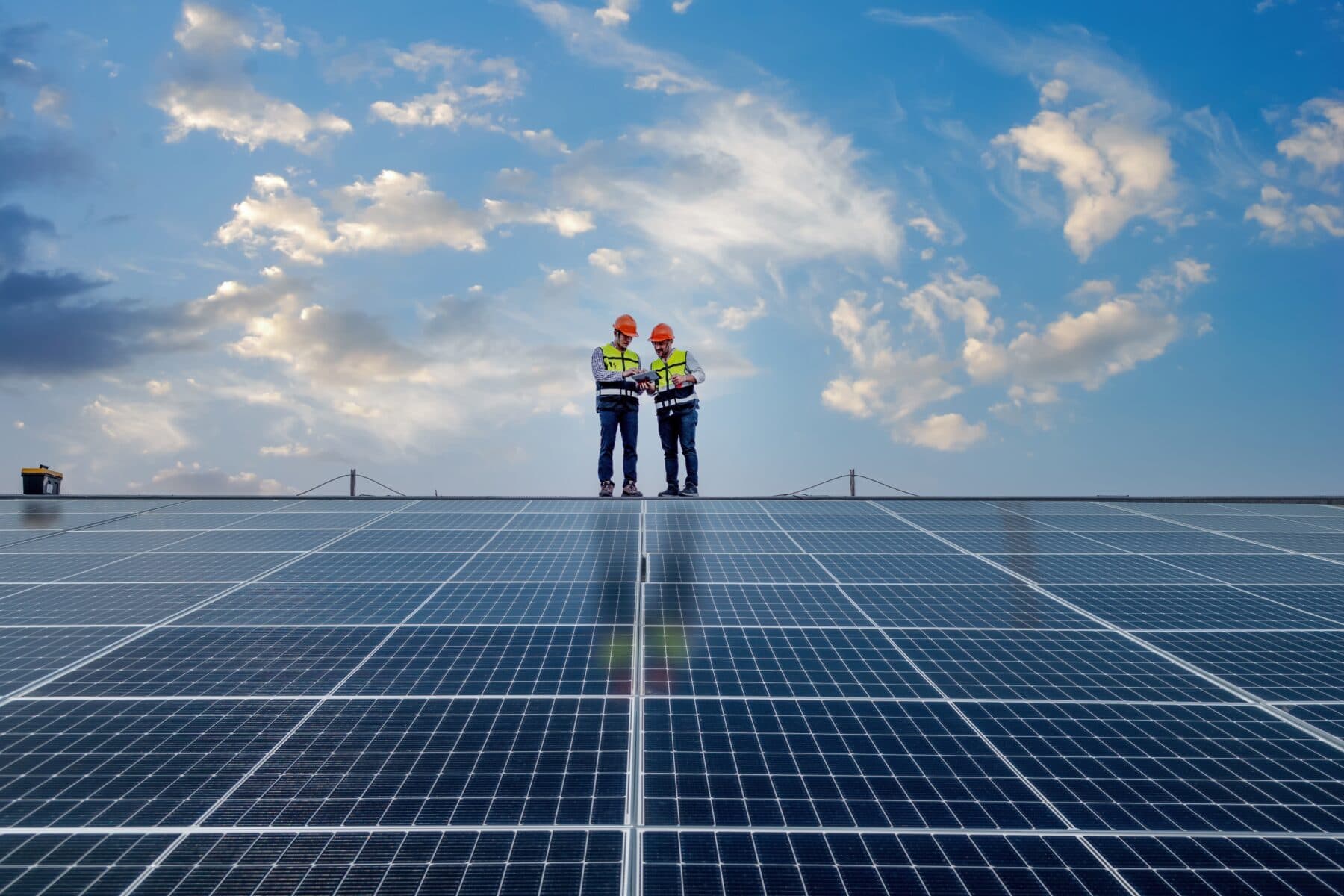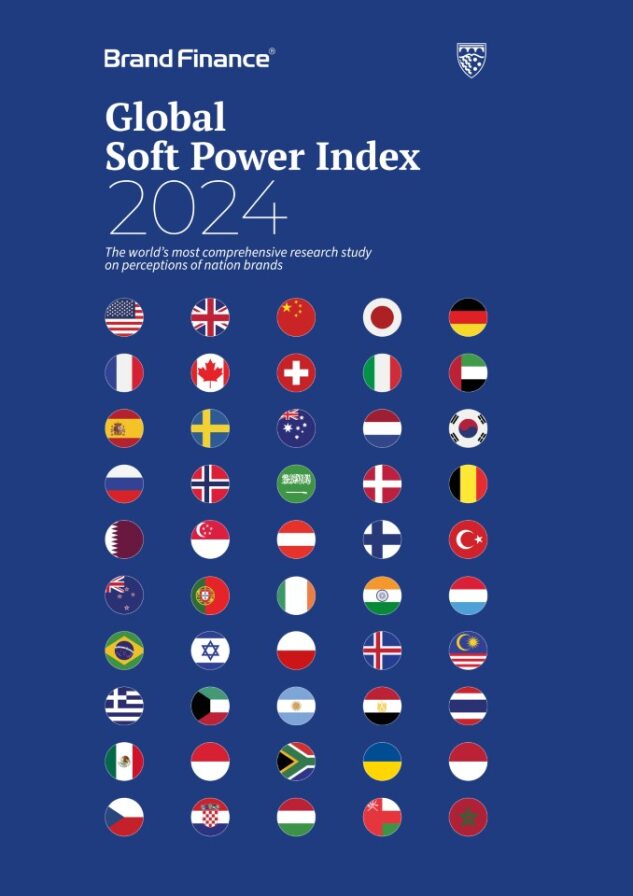This article was originally published in the Global Soft Power Index 2024

Strategy & Sustainability
Director, Brand Finance

Senior Strategy & Sustainability Consultant
Sustainability encompasses issues that are truly global in scope, from topics like climate change and ocean pollution, to human rights in supply chains that span multiple countries. For this reason, the sustainability-related actions of countries have significant scope to shape their international reputation and Soft Power.
Brand Finance’s Global Soft Power Index reflects the complex linkages between sustainability and Soft Power. Within the Sustainable Future pillar, nation brands are evaluated on four aspects of environmental sustainability: cities and transport, support for global action on climate change, green energy and technologies, and environmental protection.
Beyond this, sustainability is reflected in many other Soft Power attributes – nearly half of the attributes that drive national Soft Power (44%) relate to environmental, social, and governance (ESG) themes. Our data points to a clear relationship between sustainability and Soft Power. Figure 1 plots national Global Soft Power Index (GSPI) scores against scores on the United Nations Sustainable Development Goal (SDG) Index, an aggregate measure of overall national performance against the UN SDGs. The correlation coefficient of r=0.65, whilst not perfect, demonstrates a clear relationship between national action on key sustainability challenges and Soft Power.
This is supported by the finding that a nation’s Sustainable Future pillar score is highly correlated with national Reputation. Here, we see a strong correlation of r = 0.93. The sustainability perceptions that nations build fit within broader national activities: here we focus on Diplomacy and Business & Trade.
Diplomacy
Diplomatic settings must place sustainability in a Soft Power context through dual relationships. National governments exercise diplomatic Soft Power to persuade others to make commitments at major conferences, like the annual UN Conference of the Parties (COP). Simultaneously, these events are an opportunity for nations, particularly the host, to present themselves as key actors at the heart of negotiations and leaders in sustainability.
At these annual conferences where all voices are heard on the world stage, smaller nations have also built a Soft Power platform around sustainability. This is particularly important for island states, which stand to be hit first by the worst effects of climate change, and Indigenous peoples, who have long been sustainable custodians of their land and fight displacement and degradation.
In our data, there is a correlation of r=0.89 between national Sustainable Future pillar scores and influence in International Relations.

Business & Trade
National reputation-building for sustainability is pronounced during the ongoing green energy shift. Denmark’s strong sustainability reputation is based on its swift adoption and scale of renewable energy industry infrastructure. Its endeavours have made zero-fossil power days possible in recent years, alongside new partnerships forged with other nations like Japan. For this reason, Denmark has developed an association with the wind energy industry that can be likened to Germany and the auto industry. Such a perception of national expertise continues to help its brands such as Vestas to export around the world.
In overseeing commerce activities, national governments increasingly monitor greenwashing and oversee sustainability reporting. The European Union continues to set the tone in this space with its Corporate Sustainability Reporting Directive (CSRD) and new anti-greenwashing directive.
At the Global Soft Power Summit 2022, former Danish Prime Minister Helle Thorning-Schmidt made the key point that nations—like corporate brands—should be careful to ensure that their communication and applications of Soft Power are backed up by substance. Further, the enduring power of nation brands must be emphasised; media ‘noise’ rarely appears to register at an international level in the short term, which is why nation branding campaigns must be linked to real substance and supported by long-term financial investment to have the desired effect.
In our data, there is a correlation of r=0.96 between national Sustainable Future pillar scores and influence in Business & Trade.
Perceived Sustainability Highlights
Turning to the nation brand-level results from this year’s Global Soft Power Index, repeat players have filled the top five ranks on many measures of sustainability (Figure 2). For ‘high ethical standards and low corruption’ Japan receives the highest score, just ahead of Switzerland. Nordic countries, regular top performers on a wide range of Soft Power metrics, also score well, with Norway 3rd, Finland 4th, and Sweden 5th.
For ‘tolerant and inclusive’ society, we see a similar group of countries. Canada tops the list, followed by the Netherlands, Sweden, Norway, and the United Kingdom.
The United States once again has the highest perceived score for ‘helpful to countries in need.’ The US’ strong support for Ukraine may help to explain this performance, supported by the country’s enduring support for international institutions and development programs.
As much as the US is a magnet for criticism, the global public recognises and (in Soft Power terms) rewards the country for its generosity, alongside Canada, Germany, the UK, and Sweden. On measures of environmental sustainability, Nordic countries again perform well. Rated on ‘acts to protect the environment,’ Norway is first, followed by Switzerland, Sweden, Canada, and Finland. ‘Sustainable cities and transport’ are one the most important sustainability-linked drivers of Soft Power. On this metric Japan leads for the second year.
Germany, Sweden, and Switzerland follow Japan. The UK makes it into the top five, likely attributed to its increased efforts on low-emissions transport.
The final sustainability statement is ‘supports global efforts to counter climate change.’ Here, our research indicates a misalignment between public perception and reality. The US is ranked at the top, closely followed by the UK in 4th. However, the contributions of the US and UK to historical carbon emissions and associated climate change are amongst the highest in the world.
Given this, stakeholders rightly question both national intentions and their ability to execute. The UK’s recent steps back from its declared net zero plan in autumn 2023 were widely taken up in the media, and its climate leadership positioning was questioned. In a more extreme case, the US and China were not even invited to the UN Climate Ambition Summit held the month prior.
Conversely, countries with far lower historic emissions and a lower ongoing per capita impact today are arguably not getting the recognition that they deserve as stores of natural capital. There could be an opportunity for the likes of Sri Lanka, Zambia, Jamaica, Mozambique, and many more to convey the critical role they play in the sustainable development dynamics of all nations.

